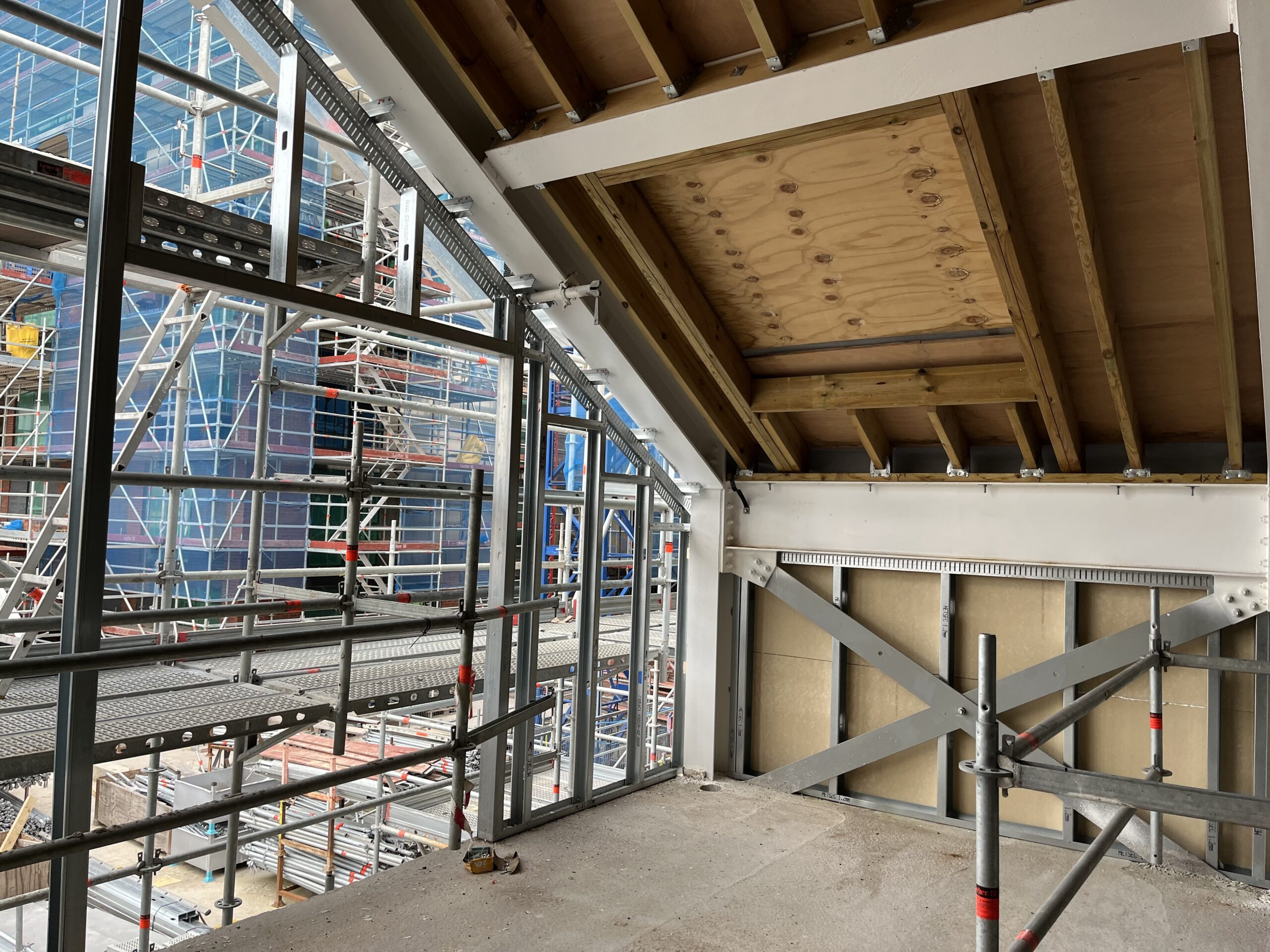
Building Better board director Terry Fuller used to work at L&G Modular. Here he explores some of the issues facing Cat 1 manufacturers right now.
Legal & General Modular Homes ceasing production at their North Yorkshire factory was a blow to the MMC sector. The news that ilke Homes has now gone into administration underlines how difficult it is for volumetric manufacturers right now.
These announcements serve as an important reminder of construction market fragility across the board. Both traditional contractors and offsite manufacturers have been affected by skills shortages, materials prices, energy costs and inflation, with construction companies making up nearly 20% of all insolvencies in the first quarter of 2023, higher than any other sector.
But what other factors have specifically impacted Category 1 manufacturers and are there any key lessons we should take on board?
Big investments are needed for Category 1 manufacturers to set up their factories and get production started and they rely on predictable, consistent, large-scale demand to keep their production lines going. If this isn’t there, problems arise.
With L&G Modular, planning delays on various sites may have contributed, along with the aftereffects of Covid. But it was the ‘hangover effect’ of the decisions taken under Prime Minister Liz Truss, which impacted financial security – as with all pension companies – and that may have had a significant bearing. The downturn in the market in all tenures reduced demand, and both companies had large, fixed overheads.
Any major quality issues or limited risk-sharing can also have detrimental impact.
Whatever the reasons behind Category 1 manufacturers ceasing production, one thing is very clear: contracting and delivering houses is currently a difficult game to play. Setbacks like this are hard but they do give us the chance to reflect. And learning is one of Building Better’s core principles and something we shouldn’t shy away from. It feels like there are a melting pot of challenges facing construction and we need to work even harder to pinpoint what these are for MMC, particularly Category 1, and address them. Some thoughts below.
Collaboration. It’s a phrase used often around MMC, but it really is critical. And that’s not just joint working amongst social housing providers. Manufacturers, too, must join forces, as Mark Farmer recently said: ‘sharing R&D risk, improving system interoperability and improving supply chain resiliency and market confidence’.
Product credibility. It really is everything. Know your product and prove its quality. Test again and again and fix defects fast. This is key for housing association customers and their residents but also for the reputation of MMC overall.
Product variety is also important. One limitation for manufacturers like L&G Modular may well have been only having three house types and two flat types.
And control of product quality on site is another issue to address. While factory-built modules may be triple checked in the factory, they still have to be built on-site, with all the traditional challenges of foundations, levels, utilities and weather that this brings.
Demand. L&G Modular cited a weak pipeline as one factor behind production halting but ilke had twice as many Business Development staff and still failed. There was an early decision taken by the company not to apply for or join procurement frameworks. The reason being that applying was expensive and time consuming, and the benefits weren’t always known. Frameworks claiming £2bn of potential works with a pipeline of 20k homes but offering no details of the size or location of schemes, and also asking for a fixed price, was no incentive to apply. The strategy instead was for L&G Modular to buy land and sell it on as packages to social housing providers or seek local authority partnerships.
We all know that MMC factories (particularly big Cat 1 manufacturers) need a high volume of regular, consistent orders to stay open. L&G Modular geared up with a 550,000 sq. ft factory, that had a 3,500-home capacity and a large factory workforce, but they also had limited business development resources and capital for land purchase.
A lesson here is the value of alliances such as Building Better and the procurement frameworks they provide. We must all work even harder to aggregate demand in the social housing sector and scale up throughput. But crucially, we must also keep frameworks simple and attractive.
Regulation. If the government legislates harder, and regulation changes from carrot into stick, then social housing organisations will be forced to build higher performing homes and that will drive innovation. Offsite manufacturers are a lot clearer on how to get to net zero than traditional contractors are – it’s a bigger jump for them and that’s reflected in price. However, in my experience, I’d say large numbers of housing associations and local authorities don’t actually have a policy or strategy on MMC or carbon reduction. This has to change.
Business model. Major traditional house builders currently employ strategic land buyers, senior managers and site managers. But everyone else is a site contractor and the taps can be turned off if there is a downturn. This isn’t such an easy model for enormous factories to adopt but surely there are some lessons here for MMC Category 1 manufacturers?
Due diligence. Organisations like Building Better and our partner, Procurement for Housing have developed robust assessment processes, thoroughly testing manufacturer stability so we can give housing providers assurance that they are accessing heavily vetted and approved manufacturers. This is absolutely essential to ensure market confidence and must become the norm for all MMC framework and DPS providers.
Despite the news about L&G Modular and ilke Homes, we must remember how far MMC has come in social housing. This is a high-risk, innovative industry and there will be bumps in the road, with challenges varying from manufacturer to manufacturer, depending on their pipeline and investment portfolio.
Overall, so much has been achieved in recent years. Problems around payment structures, quality assurance, mortgageability, lender confidence and cost parity have all been surmounted. And momentum continues to build fast, driven by environmental targets, a growing labour gap and the need to deliver homes faster. We must learn hard from these setbacks and look positively to the future.

Terry Fuller is a Board Member of Building Better
16 October 2023